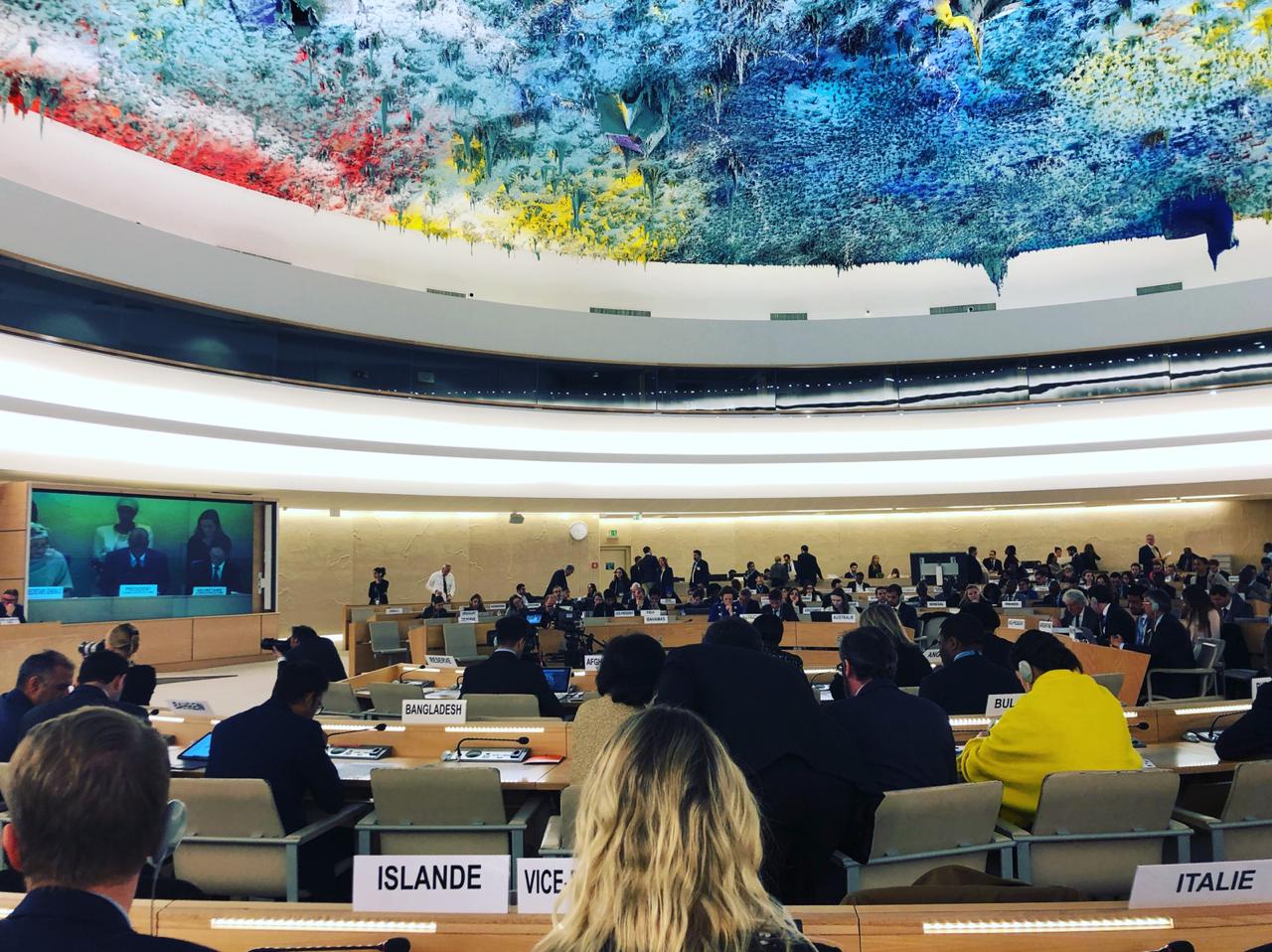On Thursday 27 June, during the 41st session of the United Nations Human Rights Council, Americans for Democracy & Human Rights in Bahrain (ADHRB) delivered an oral intervention during the Annual Full-Day Discussion on the Human Rights of Women. In the intervention, ADHRB discussed the issue of violence against women in the work place. Specifically, the intervention highlighted the plight of migrant workers in the Gulf Cooperation Council, and their vulnerability at the hands of their employers. Migrant domestic workers in particular suffer from abuses, because they work in their employers’ homes. Continue reading for the text of the intervention, or click here for a PDF.
Mr. President,
ADHRB welcomes this opportunity to bring the Council’s attention to the ongoing exploitation of female migrant domestic workers in the United Arab Emirates.
Under the kafala system, migrant workers, and migrant domestic workers in particular, are vulnerable to labor abuses and physical abuse at the hands of their employers. Migrant domestic workers are often recruited for employment in the Emirates and are predominantly female, working as maids in the personal homes of their employers. Due to the intimate setting of domestic work, domestic laborers are at high risk of physical and sexual abuse. Employers also withhold passports, refuse paid overtime and time off, and fail to pay the appropriate wages to migrant domestic workers – an issue largely endemic to the sponsorship system.
While the Emirates has claimed it seeks to reform its labor laws, it has failed to fully implement legal protections for the migrant domestic working population or to fully empower enforcement mechanisms. Wages for migrant domestic workers are not protected under the Wage Protection System, a loophole that leaves migrant domestic workers at particular risk of wage theft. Reports have also found that the government has failed to fully enforce in-home inspections to ensure employers comply with domestic labor laws – in part due to sociocultural barriers – further perpetuating the cycle of abuse.
The intimate and isolated work environment of migrant domestic workers in the United Arab Emirates makes them exceedingly vulnerable to exploitation under the kafala system and at risk of physical and sexual abuse by employers. Given the nature of their positions, what recommendations does the Council have to strengthen the implementation of domestic worker protection laws and improve the monitoring process?
Thank you.





